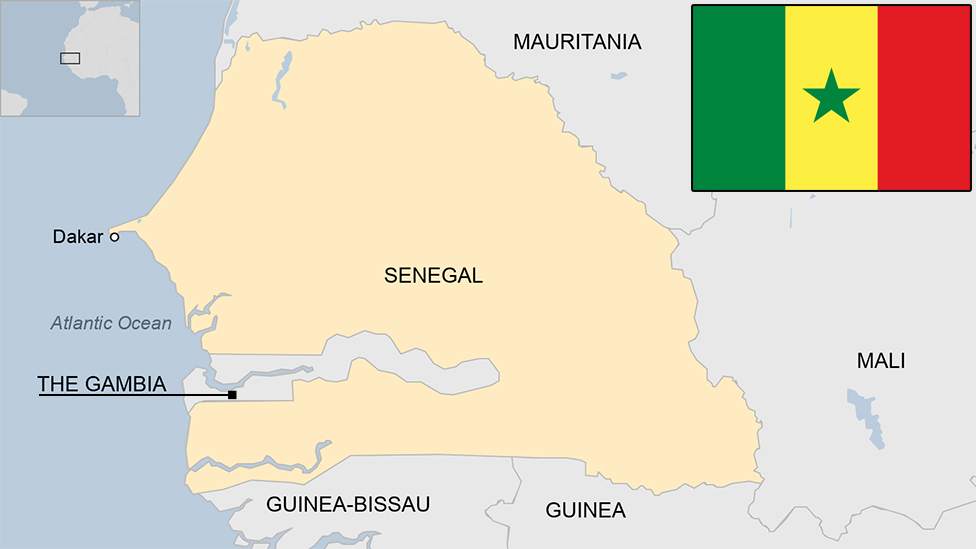Baye Modou Fall: The Senegalese convict who says he escaped prison 12 times
- Published
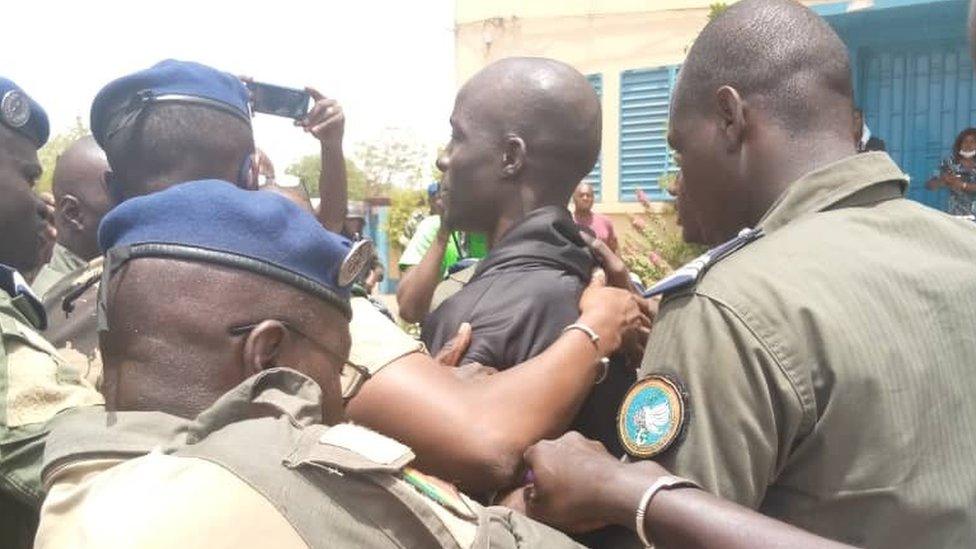
Baye Modou Fall was arrested on Thursday after escaping from prison again
A serial jailbreaker has captured Senegal's imagination after escaping from prison for what he says is the 12th time.
After he escaped in May, Baye Modou Fall described on Senegalese TV how he broke out of prison by breaking a ventilation grill and climbing over a wall using a rope.
He says he had been waiting trial for nine years and some lawyers say his case highlights the need to reform Senegal's justice system.
So who is Baye Modou Fall?
The 32-year-old describes himself as a businessman, having inherited property from his late father.
But he has been in and out of prison since he was a juvenile, mostly on charges of robbery.
He insists that he is not violent and does not use weapons.
He never had state schooling but went to Koranic school before going on to learn about the basics of computers in different workshops.
He was first arrested in his home town of Diourbel, 160 km (100 miles) east of Senegal's capital Dakar, as a child.
And his first escape from detention was from Diourbel juvenile prison.
He had several subsequent brushes with the law, before being arrested in 2015 but the following year managed to flee to The Gambia. There he was also detained but the government refused to extradite him to Senegal.
After five months in The Gambia, he was re-arrested in Senegal, near the border with Guinea.
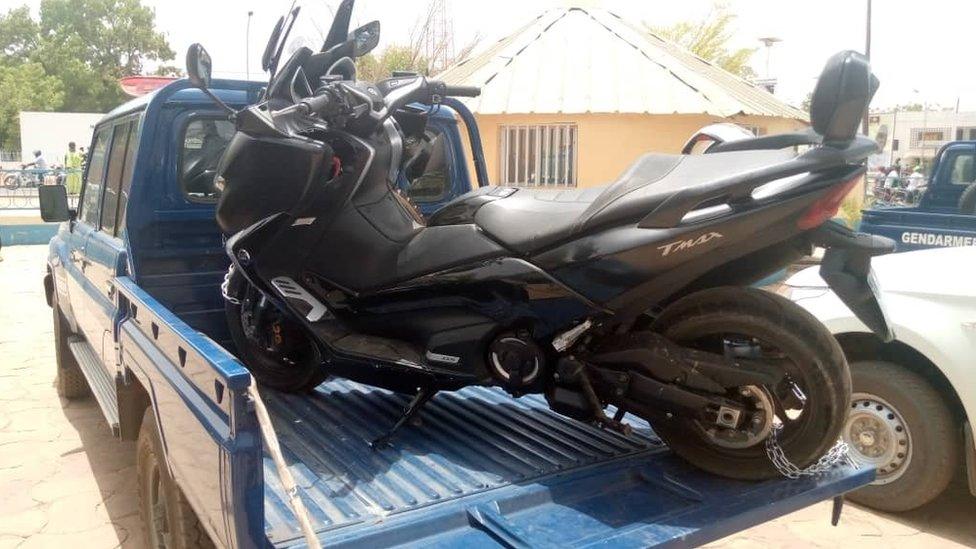
He was arrested on a motorbike near the border with Mali
Four years later, he was finally convicted of robbery in November 2020 but was still awaiting trial on various other charges when he fled prison last week.
The authorities have not confirmed Fall's claims to have escaped detention 12 times. His former lawyer, Abdoulaye Babou, told the BBC it was at least 10 times.
'Not a superman'
In Senegal he has been nicknamed Boy Djinné, which means Spirit Boy in the Wolof language, but his former lawyer thinks this doesn't reflect his true character.
"The press has made him into a superman. He has no mystical power," Mr Babou says.
"He does not have the physique of a kingpin. He is very thin, short and extremely shy.
"He will never look you in the eye. He is not a thug. He has never killed anyone," insists Mr Babou, who defended Fall for 10 years.
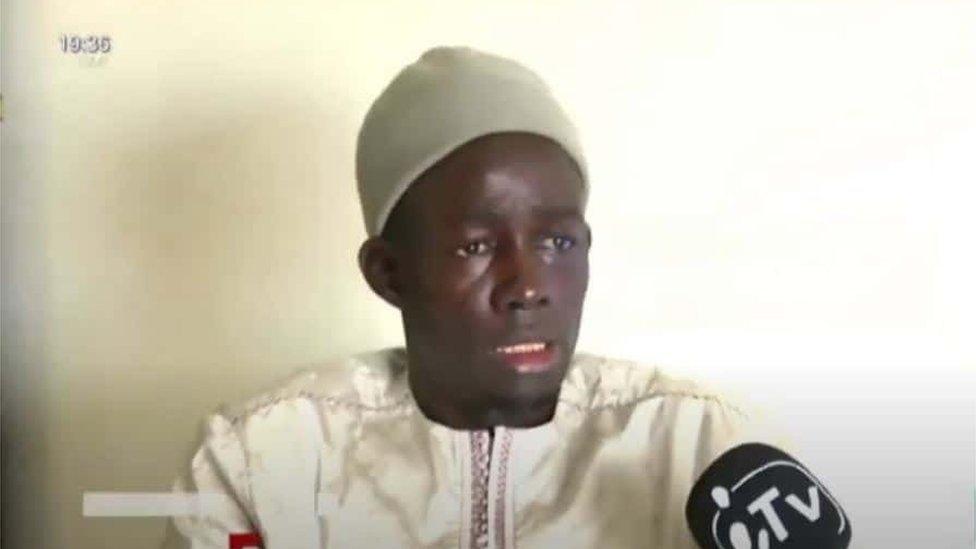
Baye Modou Fall gave an interview to television after he escaped
After the latest escape, Fall said in a television interview that he had escaped because court proceedings were taking too long.
He said he had been in jail for nine years awaiting trial for robbery and evading the authorities.
"The offence of escaping is another sentence, I know that. But since I have spent nine years in detention for nothing, this escape is a sacrifice for me. I am fighting for the truth to come out. I decided to take matters into my own hands.
"I always knew that I could get out of prison at any time, day or night," he told Senegal's ITV television.
"There is no security where I am detained at the Penal Camp, even though people argue the opposite.
He also gave details of how he escaped, by breaking a ventilation grill and escaping over a wall in the prison using a rope attached to an electricity pole.
He insisted he had no accomplices.
The authorities, however, dispute this account.
The Regional Inspector of the Penitentiary Administration of Dakar Mbaye Sarr insists that he was in the high-security area of the prison and that he must have had assistance.
He says he has started an investigation and the guards on duty between 05:00 and 06:00 local time are being interviewed.
The prison's director has also been reassigned to other duties pending an investigation.
Fall was finally re-arrested on Thursday near the border with Mali, where he was reportedly trying to flee on a motorbike.
'Victim of a flawed system'
Fall's case highlights the problem of long pre-trial detention in Senegal.
The Senegalese penal code does not put a limit on the amount of time the accused can be detained, awaiting trial.
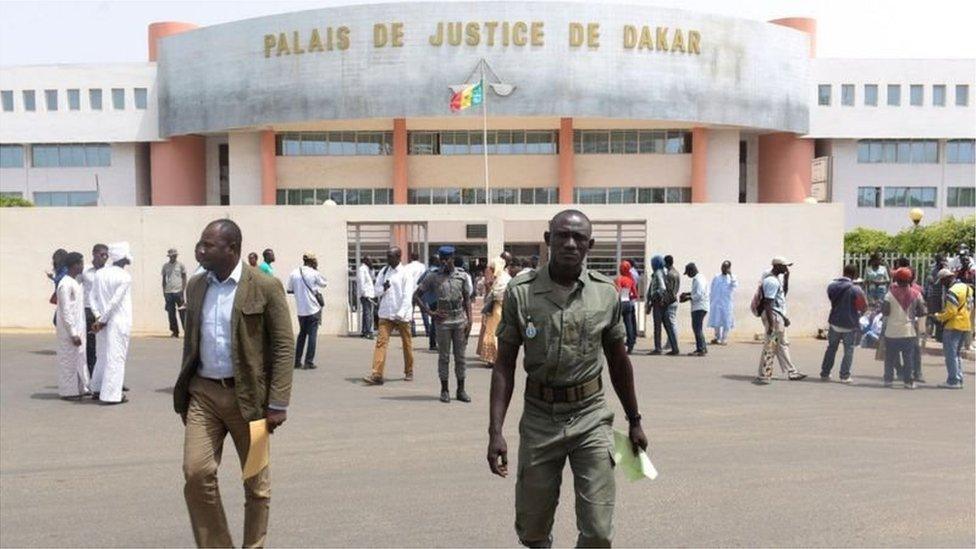
Some say Fall's case highlights the need to reform Senegal's justice system
"When someone is in prison, they have to be released or tried, otherwise they should be freed on bail," says Senegalese lawyer Ousmane Sèye.
He points out that some people have been kept in pre-trial detention for longer than the sentence they would get if convicted.
"That is why I think that deep reforms of the Senegalese judicial system are needed."
Mr Babou thinks his former client is a victim of a flawed system.
"He is in prison and he has no idea about the outcome of these cases despite the letters he sent to the authorities and which remained unanswered. He is not given a chance to be tried. It is not fair."
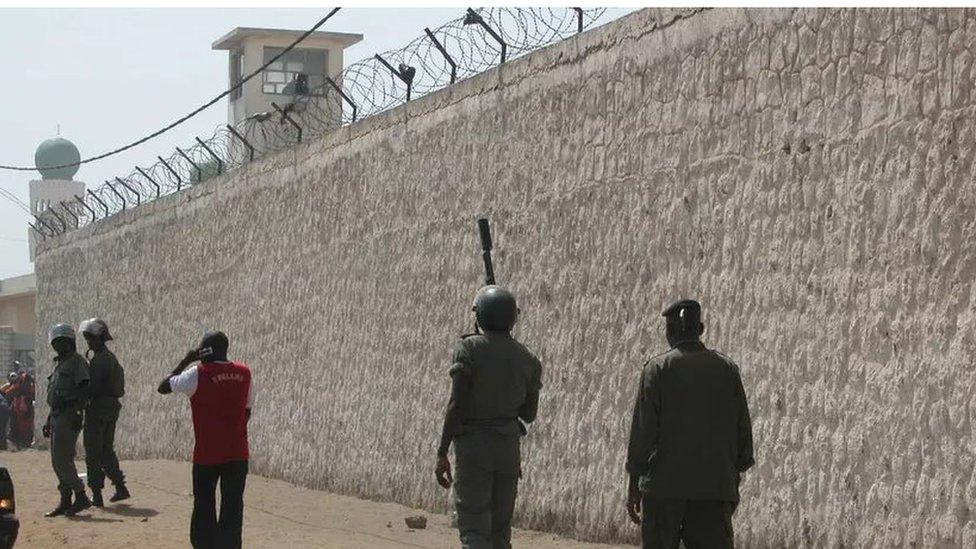
Human rights activists have been campaigning for years about prison overcrowding
For years human rights campaigners have criticised prison overcrowding and called for ways to reduce sentences.
A breakthrough came in 2020 when the authorities gave the green light for the introduction of electronic bracelets as an alternative to prison.
This will allow for house arrest instead of pre-trial detention and even electronic surveillance of some convicts.
It is yet to be implemented, but a government source said that a monitoring centre was currently being created.
Related topics
- Published2 July 2018
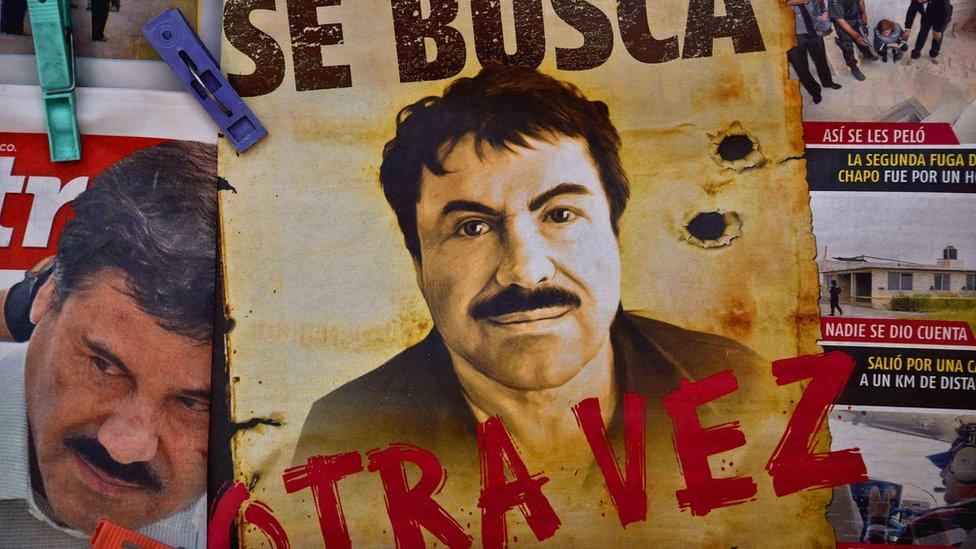
- Published9 July 2024
